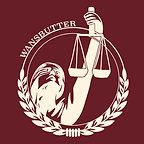Criminal Law
Drive Impaired / Over 80 / D.U.I.
Impaired driving means driving any motorized vehicle including cars, boats, aeroplanes, and trains while impaired by alcohol or drugs. “Over 80” is the charge that is laid when someone blows into a breathalyzer and the results are over 80 milligrams of alcohol per centilitre of blood.
Impaired driving cases can have the greatest impact on your life of any charges in the Criminal Code. It is one of the few charges that has a mandatory minimum sentence. For a first offence it is a $1,000 fine and 1 year driving prohibition. For a second offence the minimum is 30 days in gaol and two years driving prohibition. After the driving prohibition is completed, the Ministry of Transportation Ontario requires you to complete the “back on track” programme and have a breathalyzer installed in your car, costing many hundreds of dollars more.
Firearms Offences
Canada has some of the strictest firearms laws in the world, and some of the heaviest penalties are handed out not under the Criminal Code, but the Wildlife Act. For a very minor mistake, a person can not only lose his hunting priveleges and P.A.L., but could have his firearms, hunting gear, and even car confiscated.
In many cases, the use of the firearm in the commission of another offence is an aggravating factor and will substantially increase the penalty a person faces; in certain cases, minimum gaol sentences which would otherwise not be present come into play. But people can also be charged with Careless Use of a Firearm for merely storing it incorrectly. A conviction for a firearms offence can have serious consequences on your life, so you should consult a lawyer before entering any plea on a charge involving a firearm.
Violent Offences
Many offences are considered violent offences, from a scuffle outside of a bar up to robbery and murder. The situations that give rise to such charges are almost always more complicated than they might appear on the surface to the casual observer.
There may be defences available such as self-defence or consent, or you may just need the “full picture” to be placed before the Courts. That is why crimes involving violant offences, demand the attention of an experienced and highly capable lawyer who understand how to fully prepare a case for trial. With penalties ranging from fines, court-ordered treatment and significant prison sentences, the counsel you work with can impact your life for years or decades to come.
Criminal Harassment, Domestic Violence, & Sexual Assault
Many police forces today, have dedicated Domestic Violence Units. This means that crimes committed within the context of a family or other intimate relationship receive extra scrutiny and attention from the police. One must also be aware of the politically-charged atmosphere and the existence of “zero tolerance” policies which often serve to make criminals out of regular citizens who made a one-time mistake (or have not even committed a crime).
Ontario has a zero tolerance policy and police officers are instructed that they must lay a charge “if there are reasonable grounds to believe an offence has been committed in relation to the Criminal Code, Child and Family Services Act, Children’s Law Reform Act or Family Law Act”. In the politically-charged atmosphere of “domestic violence”, ‘reasonable grounds’ is often as little as a 911 call being made.
Constitutional Law
Constitutional law is one of many avenues of public law, with a body of rules regulating the functioning of the state (Country). At its heart is the Constitution—the supreme law of Canada—which comprises written, statutory rules, and rules of the common law (a living body of law – fluid like almost – that evolves over time through the decisions from the courts), as well as conventions derived from British constitutional history. It has three key components, the executive, the parliament, and the judiciary; and of course, the basic rights of citizens and in Canadas’s case, the relationship between central government and state, provincial and territorial governments.
As with many lawyers in Canada, Nicholas Wansbutter believes, respects, & operates within the Constitution and will aggressively apply it to your case if and/or when best suited to do so. Furthermore, Nicholas Wansbutter has been contracted by the Justice Centre for Constitutional Freedoms (also known as the JCCF) to defend such cases.. For more information on the Constitution and current cases before the courts please click below…
Constitutional Law of Canada
Constitutional Law – The Canadian Encyclopedia
thecourt.ca – Osgoode Hall Law School
Human Rights Law
The Canadian Human Rights Act was created in 1977 and serves to protect individuals in Canada from discrimination on the bases of race, age, sex, national or ethnic origin, colour, religion, sexual orientation, gender identity or expression, marital or family status, genetic characteristics, disability, and conviction for an offence for which a pardon has been granted or in respects of which a record suspension has been ordered. Unlike the Charter of Rights and Freedoms, which provides Canadians with a broad range of rights, the Canadian Human Rights Act covers only equality rights. It also governs only federal jurisdictions. Each province and territory in Canada have their own human rights legislation, which apply to local entities such as schools and hospitals.
As with many lawyers in Canada, Nicholas Wansbutter believes, respects, & operates within the Canadian Human Rights Act along with the Charter of Rights and Freedoms and will aggressively apply one or both of these to your case if and/or when best suited to do so. Furthermore, Nicholas Wansbutter has been contracted by the Justice Centre for Constitutional Freedoms (also known as the JCCF) to defend such cases. For more information on the Canadian Human Rights Act or the Charter of Rights and Freedoms please click below…
Canadian Human Rights Act
Canadian Human Rights Commission
Justice Centre for Constitutional Freedoms
Military Law
Canada’s Military Justice System is a unique, self-contained system that is an integral part of the Canadian legal landscape. This separate, yet constitutionally valid system operates in parallel with its civilian Criminal Justice counterpart; in which Nicholas also practices. The system is created within and known as the Code of Service Discipline (CSD), which is Part III of the National Defence Act (NDA). The purpose of the Military Justice System is to maintain discipline, efficiency, and morale in the military. In Canada, this has always been separate from the civilian system because of the unique needs, like discipline, efficiency, and morale; the (NDA) sets out the rules for the Military Justice System.
These cases typically are extremely complex, lengthy, and require a very in depth and more often than not, a personal connection/understanding of military law as Nicholas Wansbutter does; not only as a lawyer and dealing with these cases but also as he has served as an Infantry Officer with the Royal Winnipeg Rifles from 1998-2002. For more information on the Military Justice System please click below…
An Overview of Canada’s Military Justice System – Government of Canada
National Defence Act
Case in Brief – Supreme Court of Canada
 Watch Don’t Talk TV
Watch Don’t Talk TV
